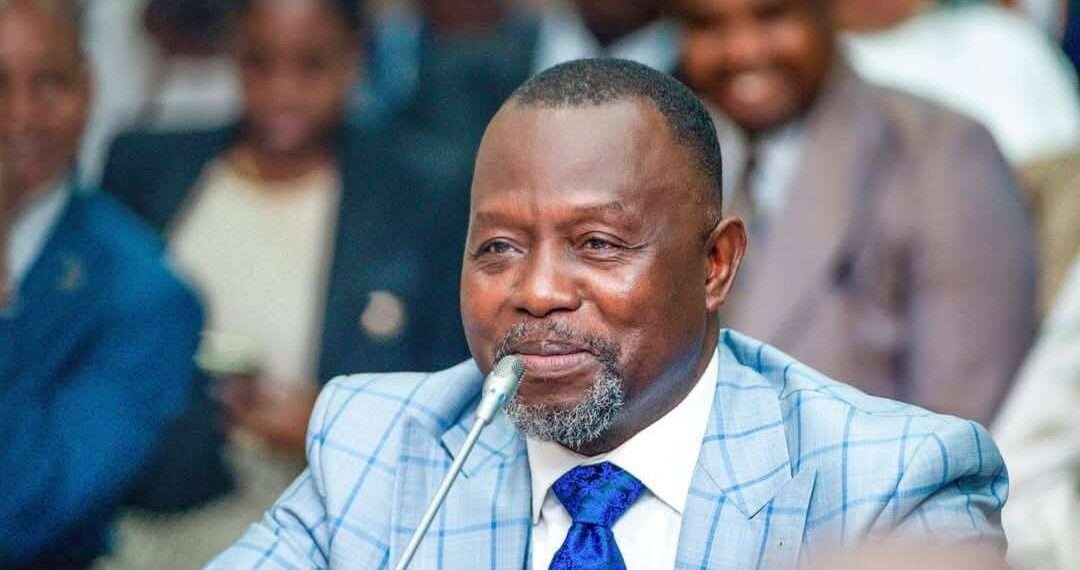Osagyefo Mawuse Oliver Barker-Vormawor, a legal practitioner, constitutional activist, and Lead Convener for the #FixTheCountry Movement and Democracy Hub, has issued a compelling argument advocating for Attorney-General and Minister for Justice Dr Dominic Akuritinga Ayine’s obligation to provide reasons when filing a nolle prosequi in cases of public interest.
His statement, rich in legal reasoning and historical context, highlighted the dangers of prosecutorial discretion being exercised without transparency and accountability.
Barker-Vormawor acknowledged differing legal opinions on whether the Attorney-General is required by law to provide reasons for entering a nolle prosequi.
However, he firmly asserted that, in a constitutional democracy governed by the rule of law, the exercise of such broad discretion must be subjected to principles of transparency and accountability, particularly in cases that affect public trust in the justice system.
Barker-Vormawor highlighted how previous governments weaponized prosecutions against activists and political opponents, manipulating the criminal justice system as a tool of suppression rather than an instrument of justice.
“This pattern of abuse has tainted public confidence in the impartiality of prosecutions, and failing to provide reasons for the discontinuance of cases only deepens suspicions about the extent of this rot. If the state now acknowledges that certain prosecutions were baseless or politically motivated, the public deserves to know.”
Osagyefo Mawuse Oliver Barker-Vormawor
By withholding explanations for nolle prosequi decisions, Barker-Vormawor pointed out that the state risks reinforcing the notion that justice remains an arbitrary instrument wielded at the discretion of political powerholders rather than a structured and fair process.
The Need for Public Justification of Nolle Prosequi
According to Barker-Vormawor, assigning clear reasons for the nolle prosequi would serve some critical functions including exposing prosecutorial abuse, asserting that providing explanations would bring to light past instances where the justice system was manipulated for political gain.
He further argued that such a move would affirm the innocence of wrongfully targeted individuals, arguing that many who have been politically persecuted continue to suffer reputational damage long after their cases are dropped.
Here Barker-Vormawor noted that a transparent explanation would serve as official exoneration.
He also pointed out that such a move by the Attorney-general would demonstrate commitment to justice and reform, asserting that a government that truly seeks to uphold the rule of law must ensure that decisions made by its justice system are open to scrutiny.
“The truth is, any fool with a little power can manufacture a charge against an innocent person. If we are serious about justice, fairness, and the rule of law, we must ensure that prosecutorial decisions—especially those that reverse past injustices—are accompanied by clear, honest, and public explanations.”
Osagyefo Mawuse Oliver Barker-Vormawor
Restoring Integrity to the Justice System
Moreover, Barker-Vormwaor, who is a a lead convener for the Democracy Accountability Hub, the organizers of the #StopGalamsey Protest argued that the perception of guilt often lingers even when charges are dropped.

Without clear statements absolving the accused, society continues to view politically targeted individuals as tainted. This, he noted, is an inherent flaw in the way Ghana’s legal and social system interacts.
“The law, to the average person, is often opaque. While we uphold the principle that an accused person is presumed innocent until proven guilty, in reality, many assume that merely being charged is evidence of guilt.
“This dangerous misconception allows malicious prosecutions to achieve their intended effect, even when no conviction is secured”.
Osagyefo Mawuse Oliver Barker-Vormawor
To prevent political actors from wielding prosecutorial powers as tools of vendetta or self-preservation, Barker-Vormawor called for an institutional commitment to ensuring that prosecutorial decisions—especially those reversing past injustices—are accompanied by clear, honest, and public explanations.
Reflecting on the cyclical nature of political power, Barker-Vormawor warned that governments should not assume they will always be in power.
He cautioned that just as nolle prosequi can be used to correct past injustices, it can also be misused to shield the guilty or perpetuate impunity.
“While we all hope that, given the extent of criminal rot the former government subjected us to, they remain in opposition long enough to learn some humility, we also know that no government stays out of power forever. One day, they will return.”
Osagyefo Mawuse Oliver Barker-Vormawor
Notably, Barker-Vormawor himself is a beneficiary of a nolle prosequi, which makes his call for transparency all the more significant. Despite benefiting from the Attorney-General’s discretion, he insisted that justice demands the public be informed of the rationale behind such decisions.
“I say all this as a person who is himself now a beneficiary of the nolle prosequi. And it serves justice for people to know exactly why these prosecutions were criminal, vindictive, and legally untenable”.
Osagyefo Mawuse Oliver Barker-Vormawor
His demands align with broader calls from civil society organizations, legal practitioners, and activists who have long pushed for prosecutorial accountability in Ghana.
His statement underscores the need for institutional reforms that ensure the Attorney-General’s office does not function as an unchecked political tool but as a transparent and accountable arm of the justice system.
READ ALSO: Ghana’s Petroleum Revenue Drops 62.63% Amid Production Decline





















